The Yoga Therapist and Cancer Care: Special Cautions
3The health status of a person with cancer can change frequently, particularly for those in active treatment, so it is critical to assess and reassess at each visit. The cautions that follow are not intended to be an exhaustive list but a starting place for you. These are some critical issues faced by people with cancer that impact health and safety when doing yoga.
• Cancer affects the immune status of patients, making them more vulnerable to illness and infection. It is important that the space you use as well as mats and props are clean before anyone with a compromised immune status uses them. I encourage clients in this situation to bring a clean sheet or blanket from home to put under them so they do not have direct body contact with the floor. Encourage students in a therapeutic class who have any symptoms of cold, fever, flu, or any other active infectious condition either not to come to class or to create as much physical distance as possible between them and anyone with low immunity. Remember, cancer patients’ immune status can fluctuate wildly from week to week.
• Along with compromised immunity, people undergoing treatment can have low blood platelet counts (which can lead to bruising and bleeding). Avoid props and ties that apply direct pressure to the skin because they can cause bleeding depending on how they are used.
• People undergoing treatment (and sometimes people with more advanced disease who are not having treatment) will often have a port or central line. These are devices placed in the chest so that drugs can be delivered directly into a vein. This is done to reduce insertion of needles into the hands and arms and to reduce inflammation that certain drugs can cause in the peripheral veins of the extremities. These devices can remain in for months. Some doctors advise their patients that there are limitations on certain physical movement if you have one of these central lines or ports. The typical limitation that is related to yoga is to avoid placing the head beneath the heart—no inversions, standing forward bends, and so on, including downward-facing dog pose. On the other hand, some physicians say there are no restrictions. It is important that your client/student understand their doctor’s directions. If the client doesn’t know, always err on the side of caution.
• Cancer can often spread, or metastasize, from its original site to other organs (including the bones). A client may or may not know if they have cancer in their bones or if their disease has spread to another site (metastatic, or Stage IV, cancer). If they do have metastatic disease, check with them about whether their type of cancer can spread to the bones (they may not know). If they have any tumors in their bones, you’ll want to know where. Also, bones may be radiated as part of treatment. If so, the client may be vulnerable to fractures—typically in the spine, pelvis, or ribs—because the bone is weakened and no longer has structural integrity. So avoid anything that stresses the bones: bound or closed poses, anything that uses leverage or torque (e.g., seated twist, bound triangle, bound side angle, and most hand-to-bigtoe variations). There can be situations where the bones are so weakened that anything that stresses the spine in extension or flexion can be risky. As above, this is dependent on the individual. When in doubt, I make the practice extraordinarily gentle until there is some medical guidance.
• If your client/student has a known tumor present, he/she should avoid putting direct pressure on the tumor. Clients often have discomfort in the area of the tumor, and that can be self-limiting. For instance, prone poses such as cobra can be a problem for people with pelvic or abdominal tumors.
• Some clients will be taking steroids. Steroids can cause mood shifts (often depression), weight gain, and physical and/or mental agitation so that it is hard to stay focused on anything and/or to keep the body still. Sleep is often disrupted or very difficult. In addition, steroids use can result in being immune compromised, so use the same precautions described above.
• Lymphedema is a condition that arises from removal of lymph nodes, resulting in fluid accumulation (typically in the arms or legs) because the lymph drainage system is no longer working correctly. Most often this condition is seen in breast cancer patients, but it is not limited to them. This condition can vary greatly from patient to patient, but generally, avoid long holds of poses that extend the impacted limb overhead. It is best to move in and out of such a pose briefly and avoid stays. Also avoid direct weight bearing on the affected limb. Because of the variability of this condition, it is best to consult with the client’s physical therapist. One last point on this condition, sometimes you the teacher or therapist may notice that a part of a limb looks swollen. If so, ask the client/student about this and make sure they are getting appropriate medical treatment. Lymphedema left untreated can be quite serious and is sometimes unnoticed by the client. This condition can also occur a long time after treatment has ended.
Conclusion
Working with people with cancer can appear overwhelming, and as I write this I am reminded of the remarkable complexity involved. But that said, begin with yourself: are you interested in this work? Do you have the training and support you need? If the answer to these questions is affirmative, then an amazing world may open up for you. People with cancer are often ready and available for work at each level of the panca mayas (koshas), and profound change is possible. I love this work. Perhaps surprisingly, it is not draining and in fact feels mutually nourishing. If you want to know more, you can contact me directly.
This article was first published in Yoga Therapy Today (a publication of the International Association of Yoga Therapists).
Ellen Fein, LCSW, CYT, E-RYT500, works with individuals and groups drawing from both mind-body tools and yoga therapy. She is a senior faculty member at the Center for Mind-Body Medicine and visiting faculty at American Viniyoga Institute. Ellen runs workshops and retreats and mentors professionals.
More information about Ellen’s approaches, her personal cancer story, client stories, and more can be on the web: www.breathe2change.com / Facebook @breathe2change / Twitter @EllenFein1 / YouTube @breathe2change
![]() [jetpack_subscription_form title=”Read more stories from yoga teachers who found their unique voice “]
[jetpack_subscription_form title=”Read more stories from yoga teachers who found their unique voice “]


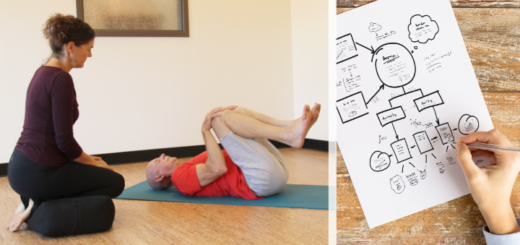
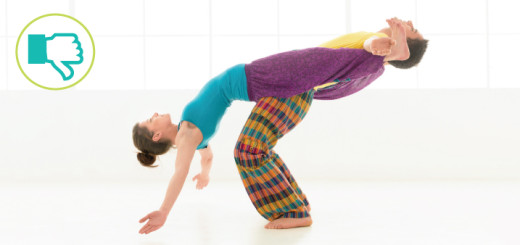
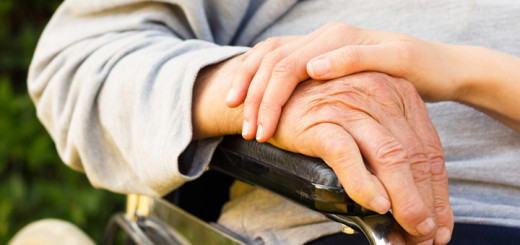
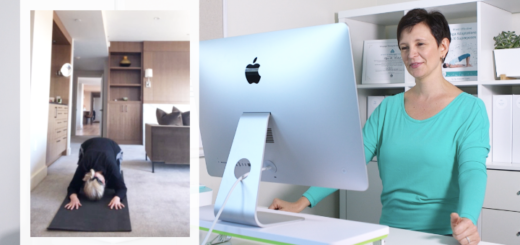












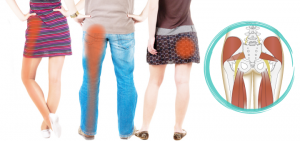
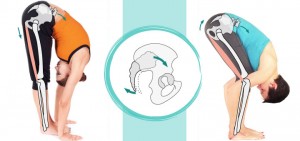
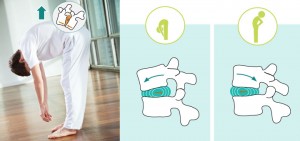
These are excellent considerations, thank you for helping us help our students safely!
Dear Ellen … thank you so much for your wisdom and offerings – very valuable. I’ve just been asked to work with a man with cancer – first class tomorrow – so your articles here are perfect timing for me.
Namaste to you, Neal
Thank you for the excellent article! I’m in yoga teacher training, am a cancer survivor, and I was a clinical massage therapist for years. I’m writing a paper at the moment, and I appreciate your thoughtful and thorough writing.
One correction (or at least I think of it as such): cancer itself doesn’t compromise the immune system; rather, the treatments do so.